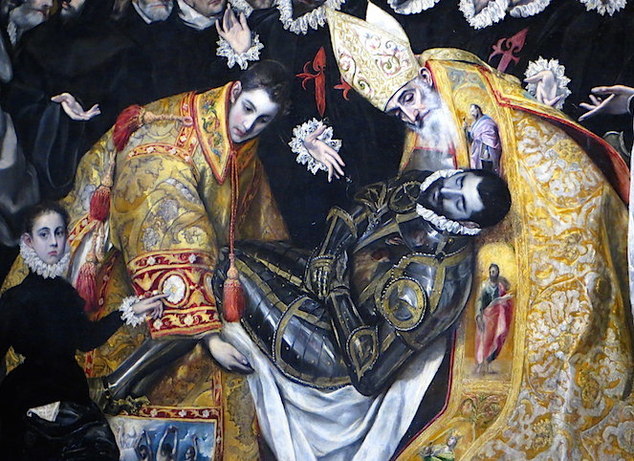-
 Deleteduserrc
2.8kI have a book called Surviving Death (2010) by a guy named Mark Johnston. This is an analytic-philosophy inflected exploration of (quite literally) the idea: what if you don't actually die when you die? He means it, I think. To forestall any crackpot-red-flags, it has the necessary blurbs - New Yorker says something good, so does a guy from MIT (spoiler - Johnston's life-after-life seems slightly buddhist, this isn't the lead-to-gold of sweaty alchemists)
Deleteduserrc
2.8kI have a book called Surviving Death (2010) by a guy named Mark Johnston. This is an analytic-philosophy inflected exploration of (quite literally) the idea: what if you don't actually die when you die? He means it, I think. To forestall any crackpot-red-flags, it has the necessary blurbs - New Yorker says something good, so does a guy from MIT (spoiler - Johnston's life-after-life seems slightly buddhist, this isn't the lead-to-gold of sweaty alchemists)
Anyway, It's been gathering dust since I got it a few years ago. My plan is to read it slowly, as I've slowly been reading the Ashbery book on another thread. But, in this case, commenting -- if people are interested. It's a ~350 page book, so I imagine it'll take a year or so.
My intent is to distill the reading as best I can, whenever I have some time, but nothing more formal. Probably a few posts a week.
If the thread gets attention, as I imagine it might with this title and subject, it will likely become a mess of sub-arguments. I'l try to carve a visible central path by posting some sort of image at the top of any main post. I'll have to find a good one.
-
 I like sushi
5.3kI have a copy of The Tibetan Book of the Dead. It mostly focusing on how the living deal with death - as in, if someone dies how this is managed.
I like sushi
5.3kI have a copy of The Tibetan Book of the Dead. It mostly focusing on how the living deal with death - as in, if someone dies how this is managed.
I suspect the book you mention may play of that position? -
 Deleteduserrc
2.8kI also have a copy of that book! its fascinating, but I haven't had a chance to read closely yet.
Deleteduserrc
2.8kI also have a copy of that book! its fascinating, but I haven't had a chance to read closely yet.
I can't compare them because I haven't read either in full yet, but it's my impression that this book isn't about how the family survives the death of a loved one, as important a topic as that is. It's about consciousness surviving the death of the body (though in a very qualified way) -
 Deleteduserrc
2.8k
Deleteduserrc
2.8k
I'll use this picture as a 'main post' signal, if necessary. It's a close-up from the book's cover, a painting by El Greco called The Entombment of Gonzalo Ruiz, Count of Orgaz, from a Legend of 1323. I think it's a good 'main post' signal in two ways: (1) it has a close tie to the book & (2) it's big & striking. It'll jump out if you scroll down through a thicket of nested arguments.
Ok, onto the book itself: Johnston, naturally, has introductory remarks.
Introductory remarks are hard to distill, because they are already distillations. But here's at it:
He says there are two problematic paths to travel down. The first is preaching, repeating religious dogma. The second is the mere rehearsal of materialist dogma - i.e. 'consciousness is just the brain, of course, how could it be otherwise?'
He thinks this strict either-or has bad effects. The first is that it funnels those members of the general public who aren't partial to either of those two dogmas toward impoverished "new age" thought. If there is no good option for people who don't recognize themselves in either sheer religiosity or strict materialist dogma, they'll gravitate toward snake-oil spiritualism.
The other problem, related, is that he thinks this framing feeds into the clunky Science vs Religion debate. [It seems to me like what he's rejecting here is easy, snarky 'this vs that' frameworks of the kind you'd see in either glib pop science or glib religious rejections of science]
Welcome to The Philosophy Forum!
Get involved in philosophical discussions about knowledge, truth, language, consciousness, science, politics, religion, logic and mathematics, art, history, and lots more. No ads, no clutter, and very little agreement — just fascinating conversations.
Categories
- Guest category
- Phil. Writing Challenge - June 2025
- The Lounge
- General Philosophy
- Metaphysics & Epistemology
- Philosophy of Mind
- Ethics
- Political Philosophy
- Philosophy of Art
- Logic & Philosophy of Mathematics
- Philosophy of Religion
- Philosophy of Science
- Philosophy of Language
- Interesting Stuff
- Politics and Current Affairs
- Humanities and Social Sciences
- Science and Technology
- Non-English Discussion
- German Discussion
- Spanish Discussion
- Learning Centre
- Resources
- Books and Papers
- Reading groups
- Questions
- Guest Speakers
- David Pearce
- Massimo Pigliucci
- Debates
- Debate Proposals
- Debate Discussion
- Feedback
- Article submissions
- About TPF
- Help
More Discussions
- Other sites we like
- Social media
- Terms of Service
- Sign In
- Created with PlushForums
- © 2026 The Philosophy Forum


